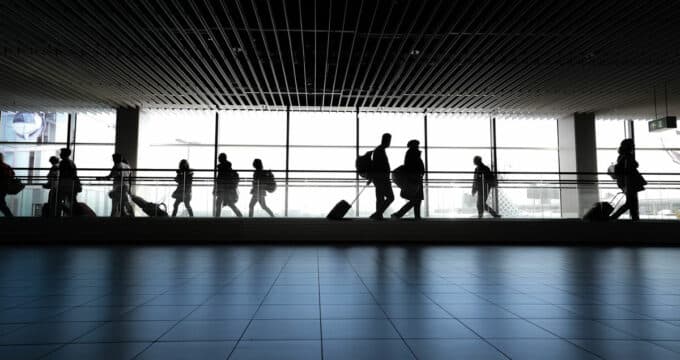British investigation alleges systemic fraud in UK language testing
UK Minister for Immigration and Security James Brokenshire rose in the British House of Commons last week to make a dramatic announcement:
A joint investigation by UK Visas and Immigration (UKVI) and the National Crime Agency (NCA) has identified “more than 29,000 invalid results and more than 19,000 questionable results” among international students completing English language proficiency exams conducted at Educational Testing Services (ETS) test centres in the UK.
The Minister said as well that the British government had taken a number of immediate steps in response:
- Following the expiry of its licence to conduct immigration-related testing in April, ETS was, in June, formally removed as an authorised provider licensed by the British government to carry out language testing for overseas students.
- A criminal investigation has been launched into ETS Global Ltd, the European subsidiary of the US-based testing company.
- Glyndŵr University has had its highly trusted sponsor status suspended (that is, the right to sponsor foreign students under British visa rules) based on as many as 350 questionable test results found among its students.
- A further 57 private colleges have also had their licences suspended.*
- Two additional universities – the University of Bedfordshire and the University of West London – are no longer allowed to sponsor new foreign students while UKVI investigations continue and may be subject to further sanctions.
On 26 August, the UK government announced the following updates to this situation:
- The University of Bedfordshire and Studio Cambridge had their licences reinstated on 5 August.
- 17 institutions have had their licenses fully revoked, and 2 have surrendered their licenses.
- 46 private institutions are still currently suspended from HTS status; 9 more institutions have been added since the original list was announced.
Systemic cheating
“ETS was exposed by the BBC’s Panorama programme earlier this year following systematic cheating at a number of their UK test centres,” said the Minister. “Facilitated by organised criminals, this typically involved invigilators supplying, even reading out, answers to whole exam rooms or gangs of impostors being allowed to step into the exam candidates' places to sit the test. Evidently this could only happen with considerable collusion by the test centres concerned.” An official statement from ETS earlier this year acknowledged security breaches in the company’s UK test centres: “Following the broadcast of a BBC Panorama programme in February 2014 which highlighted an organised criminal element seeking to circumvent the UK's visa-granting process, ETS has made the decision not to extend our Secure English-Language Testing (SELT) license with the Home Office. As a result, TOEIC testing will no longer be offered for UK visa-granting purposes. Security is and always has been a top priority; however, we’ve made this decision in response to the security challenges portrayed in the BBC programme. We acknowledge that we fell short of our own high standards and sincerely regret the dishonest activities of third party contractors in the UK whose job it was to administer the TOEIC tests honestly and fairly. When applied properly, our global security protocols prevent and detect incidents of fraud. Going forward we will continue to implement additional, stricter, best-in-class security measures for our tests, including biometric voice analyses, to ensure our test scores remain the most trustworthy in the world.”
Industry response
In his statement in the House last week, Minister Brokenshire set out the government’s position with respect to the responsibilities of institutions receiving students with questionable test scores. “I should be clear that proof that a visa applicant can speak English is only one test for somebody seeking to study in Britain,” he said. “Other requirements include proof of academic qualifications, attendance at college or university and compliance with the Immigration Rules – and if these student visa applicants had to cheat to pass an English language test it is highly doubtful that many of the colleges and some universities that sponsored them in numbers were fulfilling their duties as ‘highly-trusted sponsors’.”
The UKVI and the NCA investigations are ongoing at this time, raising questions for some observers as to the appropriateness of issuing suspensions before the investigations had been fully completed, and raising as well the prospect of appeals or other legal action from affected institutions.
The CEO of Manchester International College (MIC), Mustafa Abdulhussein, refutes the government position in commenting on the suspension of his institution’s highly trusted sponsor status: “To hold us accountable for the failure of ETS is preposterous. We cannot be expected to do a policing job for the Home Office… The few learners we have had with TOEIC certificates have all successfully completed their courses, and have had an English level that was reflected correctly, or even exceeded that shown on their TOEIC certificates.” “We intend to appeal the suspension and to apply for a judicial review unless the UKVI returns our [highly trusted sponsor status] and allows us to operate whilst they carry out their ‘full investigation,’” he added. BBC News quotes a Glyndŵr official: “The university is deeply upset that its sponsor licence has been suspended by UK Visas and Immigration and is working with them to investigate the issues raised. To be put in this position by external partners is frustrating as Glyndŵr University takes its responsibility as a highly trusted sponsor very seriously and is committed to supporting the continuing education of those genuine international students who demonstrate full compliance with their immigration requirements." “Previous student visa clampdowns,” reports Times Higher Education, “have led to claims that the government is unfairly targeting the higher education sector. Nick Hillman, director of the Higher Education Policy Institute and the former special adviser to Universities and Science Minister David Willetts, said ‘clearly’ there were ‘genuine problems’ that needed tackling, ‘but responsibility for sorting them out must be shared’. ‘The Immigration Minister is pointing his finger at the university sector’, he said, but ‘it is imperative that everyone works together to tackle the issues rather than playing a blame game that risks wider reputational damage’.”
Guidance for students and agents
The British Home Office has provided additional, detailed guidance related to the Minister’s announcement last week. The Home Office affirms that investigations are ongoing with respect to all institutions under suspension (or other sanction) and says that at the conclusion of those current inquiries: “The Home Office will discuss its findings with the institutions involved. If the institutions can address the issues identified, the sanctions against them may be lifted. If they fail to engage with the Home Office or fail to address the concerns raised, further action may be taken. For those institutions assigned zero [Confirmation of Acceptance for Studies], their licence may be suspended. If an institution whose licence has been suspended fails to address the issues raised, their licence may be revoked.” Students or agents are advised to consult the Register of Sponsors for the latest information on the status of an individual institution. For those institutions assigned zero Confirmation of Acceptance for Studies (CAS): The main point here is that these institutions – there are two at the moment: the University of Bedfordshire and the University of West London – are unable to issue new CASes. In effect, they are unable to sponsor new overseas students, pending the outcome of the UKVI investigations. “Students who are already studying with their sponsor… are not immediately affected,” says the Home Office. Similarly, students who have an outstanding overseas visa application (including an application to extend an existing visa), “are not immediately affected. Outstanding visa applications relying on a CAS issued before the action was taken will be processed as usual.” For those institutions whose highly trusted sponsor status has been suspended: English UK draws on the official Home Office guidance to explain that suspended institutions “can continue to teach students who are already enrolled or who have already been issued a visa to study at the centre. [They] cannot issue new CASes. All student visa applications that have been submitted but not processed will be put on hold until the [UKVI] completes its investigations into the centre and decides to either restore or withdraw the centre’s sponsor licence.” In other words, students already holding a visa to study at a suspended institution – whether they are already in the UK or not – may continue to pursue their studies for the term of the already-issued visa. Students who have not yet completed visa processing, or whose visa expires during the period of the suspension, will be unable to continue their studies at the suspended institution. Similarly, any pending visa applications based on CASes from a suspending institution will be put on hold, pending the outcome of the UKVI investigation (and the subsequent restoration or revocation of the institution’s highly trusted sponsor status). In the event of a revocation of a sponsor’s licence: “If a centre’s sponsor licence is withdrawn, all CASes or visa letters issued by it become invalid and all outstanding visa applications will be refused,” advises English UK. In such cases, students will not be allowed to enter the UK to begin their studies, even if they have already been issued a visa. They will need to make a new visa application at that point if they wish to study at a different institution. If they have more than six months remaining on their visas, they will have 60 days to make arrangements to study at another institution. If they have less than six months remaining on a current visa, they may stay for the term of the visa but will have to apply for a new visa if they intend to continue their studies in the UK beyond that point and with a new institution.
What next?
Affected institutions will now continue to work through the requirements of ongoing government investigations and/or to prepare their appeals or other legal actions. The British government, meanwhile, anticipates the following additional steps in the weeks and months ahead:
- Immigration Enforcement has begun the process of identifying students who have secured student visas on the basis of falsified test results and will take steps to have them removed from the UK.
- UKVI will continue to investigate other universities “and further action may follow.” The British Home Office is particularly concerned about international students enrolled at London-area branch campuses of universities based in various parts of Britain. With that in mind, “the Quality Assurance Agency for Higher Education (QAA) will examine these London campuses to see whether further action should be taken against their parent universities.”
- Immigration Enforcement is also attempting to identify and prosecute individuals responsible for language test fraud, and will also investigate links between fraudulent practices in UK test centres and wider organised crime networks. “Arrests have been made and I expect more will follow,” said Minister Brokenshire.
The wide-ranging investigations and sanctions announced last week reflect the heightened scrutiny and oversight that has characterised the UK student visa system in recent years. This arises from the 2011 changes to the UK system that conferred highly trusted sponsor status – but also a range of monitoring and reporting responsibilities – on approved UK institutions.














